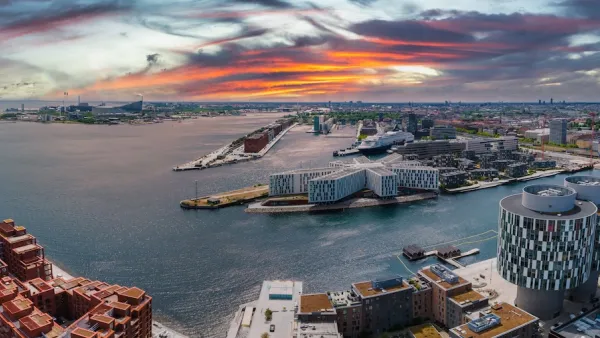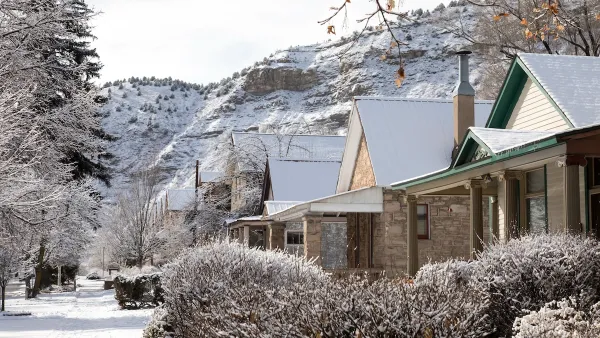We don't need to build new energy efficient homes as much as we need to refurbish the existing housing stock to make it more energy efficient, writes Richard Moe of the National Trust for Historic Preservation.
"Never before has America had so many compelling reasons to preserve the homes in its older residential neighborhoods. We need to reduce energy consumption and carbon emissions. We want to create jobs, and revitalize the neighborhoods where millions of Americans live. All of this could be accomplished by making older homes more energy-efficient.
Older homes are particularly wasteful: Homes built in 1939 or before use around 50 percent more energy per square foot than those constructed in 2000. But with significant improvements and retrofits, these structures could perform on a par with newer homes.
Experience has shown that virtually any older or historic house can become more energy-efficient without losing its character. The labor-intensive process of rehabilitating older buildings would also create jobs, and this labor can't be shipped overseas. The wages would stay in the community, supporting local businesses and significantly increasing household incomes - just the kind of boost the American economy needs right now."
FULL STORY: This Old Wasteful House

Analysis: Cybertruck Fatality Rate Far Exceeds That of Ford Pinto
The Tesla Cybertruck was recalled seven times last year.

National Parks Layoffs Will Cause Communities to Lose Billions
Thousands of essential park workers were laid off this week, just before the busy spring break season.

Retro-silient?: America’s First “Eco-burb,” The Woodlands Turns 50
A master-planned community north of Houston offers lessons on green infrastructure and resilient design, but falls short of its founder’s lofty affordability and walkability goals.

Test News Post 1
This is a summary

Analysis: Cybertruck Fatality Rate Far Exceeds That of Ford Pinto
The Tesla Cybertruck was recalled seven times last year.

Test News Headline 46
Test for the image on the front page.
Urban Design for Planners 1: Software Tools
This six-course series explores essential urban design concepts using open source software and equips planners with the tools they need to participate fully in the urban design process.
Planning for Universal Design
Learn the tools for implementing Universal Design in planning regulations.
EMC Planning Group, Inc.
Planetizen
Planetizen
Mpact (formerly Rail~Volution)
Great Falls Development Authority, Inc.
HUDs Office of Policy Development and Research
NYU Wagner Graduate School of Public Service




























